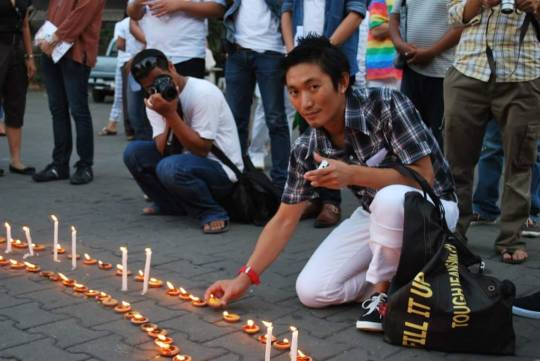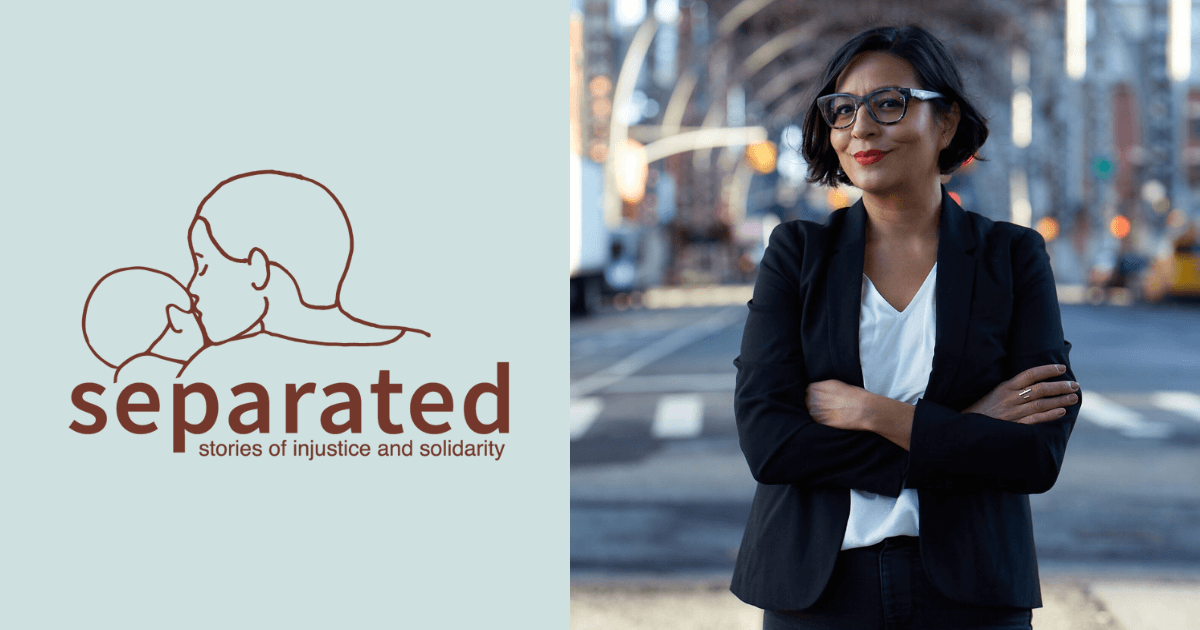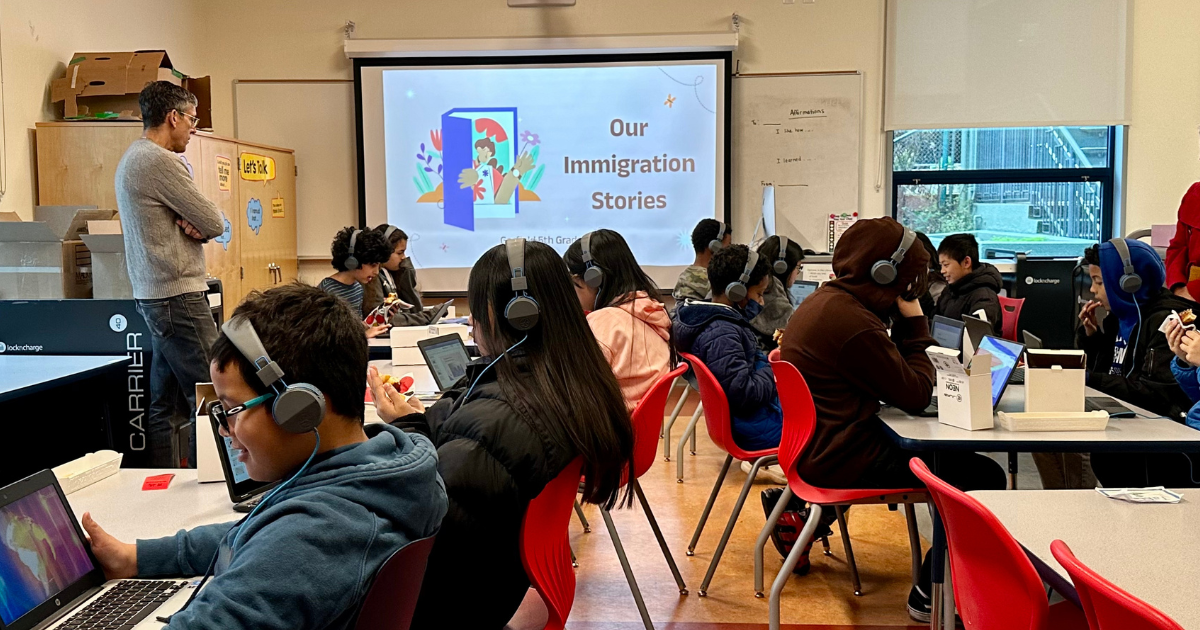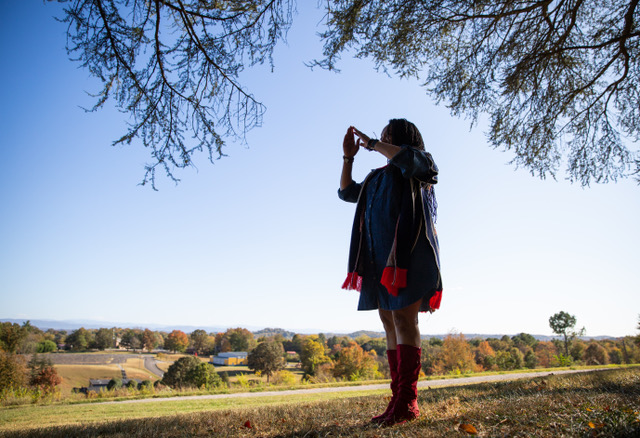
We are posting this excerpt to honor the memory of Knoo Know, one of the narrators in Nowhere to Be Home: Narratives from Survivors of Burma’s Military Regime and a visionary human rights and LGBT rights activist from Burma. We were filled with sadness to learn that Knoo Know passed away last month, leaving our world far too soon. It was an honor to work with Knoo Know and call him a friend; he was a humble hero, with an immense depth of courage, compassion, and humor. We both admired him greatly, and looked forward to working with him far into the future. Knoo Know was excited to tell his story for this book from the very beginning through to our recent correspondence, when he expressed how happy he was that a Burmese edition of the book would soon be released; we are sharing here a small excerpt of his story on his experience coming out as a gay man in Burma and about his passion for human rights. We interviewed Knoo Know in 2009 and 2010.
—Zoë West & Maggie Lemere, Co-editors, Nowhere to Be Home
KNOO KNOW
33, Human rights/LGBT activist
Ethnicity: Kachin
Birthplace: Kachin State, Burma
Interviewed in: Chiang Mai, Thailand
The first time we met Knoo Know, he was walking around a room full of flip charts and other supplies left over from a long day of conducting human rights training sessions. Knoo Know has worked as a human rights trainer for the past six years. He co-founded a Lesbian Gay Bisexual Transgender (LGBT) rights training program, which uses LGBT rights as a lens and metaphor for larger democracy and peace issues in Burma. Born in the jungle in Kachin State, Burma, Knoo Know was the son of a famous general from the Kachin Independence Army, an ethnic opposition army. Knoo Know described his childhood as an internally displaced person (IDP) and the numerous times that his family and several hundred other Kachin people had to flee their homes because of Burma army (Tatmadaw) offensives into their territory. In 1986, Knoo Know’s father sent him to town to begin formal schooling. For security reasons, he was told to change his identity and never speak of his family or his life in the jungle.
MY LAST CHALLENGE TO GOD
When I was twenty-four, my mom and sisters asked me to marry a certain woman. At that time, I had an inner conflict with my religion and my sexuality. It was a big problem. If my religion had said it was okay, I would have accepted my sexual orientation.
While I was at the theological university, I prayed so many times for my sexual orientation to change. But after the third year, I dropped out. The people there didn’t know I was gay, but they thought it, and they said things about how being gay was wrong. I was really depressed then; I tried to commit suicide once, but it didn’t work.
One day I went to a prayer mountain in Laiza, and I prayed from morning to night.
“Give me an answer. If you are really God and really love me, please tell me why I’ve become like this. If Christianity doesn’t like gay people, why am I gay?” I prayed like that and said I needed an answer by evening time. This was my last challenge to God. So I prayed, prayed, prayed, and in the evening, the answer was in my head.
Okay, I thought, this is what I am. This is what God wants, for me to be gay. I felt that if He didn’t give me an answer, it meant it was okay to be gay. It was very clear to me suddenly, and I felt amazing. So that’s when I decided to come out.
But I realized that before I came out, I had to apologize to my whole family first. I had treated them badly when I was running away from home and staying in other places, and I had dropped out of college. My whole family was really upset when I dropped out. They didn’t know what was happening to me—they didn’t want me to get hurt.
It’s our family tradition that if we do something bad to someone in the family, we wash that person’s feet. So I went to buy three towels—two for my sisters and one for my mother—and then I boiled some water. Then I called them into the house and brought them to sit on the bed, with their legs over the edge of the bed. They were all surprised. My mom said, “What’s happening? What’s wrong?” I just rubbed their feet, washed them, and talked. “I did a lot of bad things, so please forgive me.” They asked me, “Why have you been acting like this? You’re very strange nowadays. You’re a good person, but why have you become like this?” So I told them then that I didn’t want to marry that woman. They were just silent, shocked. “Why?” they asked.
“I don’t like women.”
Then my mom asked, “So what do you like?” And at that moment, my elder sister grabbed me and cried. She knew what I meant. I told them I would never marry a woman in my whole life, that I liked men. Everybody was crying, and they said, “Why didn’t you tell us before? It’s not a problem with us!” And my sister said, “You are my brother still. My brother.” They were all saying it was fine, it was okay. My whole family was really supportive. It wasn’t a problem, and they weren’t angry. Before that, sometimes I didn’t even want to look at my face in the mirror. But everyone loved me. After coming out, I felt like I had escaped from a really bad place. I began to see myself in a more positive way.
*
After I left the theological university, I continued working with human right groups underground and attending trainings. Soon after that, in 2002, our youth group received an invitation from a human rights organization to attend an internship program in Mae Sot about democracy and constitutions. I signed up and went to Mae Sot in 2002 to take the human rights training course.
In the course, I had to learn so many things about what has happened in our country. I knew about the Kachin situation, right? But I did not know about the other states. The first time I heard about Karen refugees was when I arrived in Mae Sot, on the Thailand–Burma border. I didn’t know that Karen people were also fighting against the SPDC. When I heard the stories of other ethnic groups’ struggles, I thought, “Wow, it’s the same as us.” I had already been in that kind of situation, so it didn’t seem very strange to me.
It has been eight years since I first went to Mae Sot, and I am still here in Thailand. Now I am working as a human rights trainer.
THE FIRST BARRIER
I enjoy being a human rights trainer, but I never thought about how difficult it would be to do the trainings. I train many different kinds of people.
The first barrier I encountered whenever I was doing any activity was being gay. People would discriminate, and they didn’t want me there. Even if I was talking about ethnic issues, the people in the group weren’t comfortable.
One time, the facilitator raised the issue of gay people from Burma. Everyone said, “No, no, no—we will kill them. We don’t accept gay people.” So I just kept silent and didn’t talk about that issue. I didn’t say anything during that training. This was a group of people all doing human rights training, and they all said “No way” about accepting gay people.
That’s why I started to do the Lesbian Gay Bisexual Transgender human rights program. It is a big challenge because many Kachin people are very conservative Christians. Kachin guys tell me, “You could be very useful working for all the Kachin people, but you are doing LGBT rights, such a useless issue. We’re talking about and fighting for human rights while you’re talking about this useless LGBT rights issue.”
Many of my friends know about my father and they say, “Your father was very brave and he sacrificed for the people. Now you’re doing this useless gay issue.” I answer them by asking my own questions. “Do you know how hard it is being a gay man? Or dealing with the way men treat gay people?” They don’t have any idea. I told them that I’m committed to working for all the people of Burma, not only for the LGBT people.
I usually discuss basic human rights concepts before LGBT rights in my trainings, because then they will learn about concepts of equality and that all human beings are born free. After two or three days talking about human rights, we begin to discuss gay rights; then they can understand that gay people are included in these concepts. But it’s very challenging.
I don’t know much, firsthand, about the experience of LGBT people in Burma, because I came out publicly after I arrived in Thailand. When I was inside Burma, I was homophobic, tense and suspicious—I didn’t like gay people because I wasn’t secure with myself.
The most visible gay group in the Burmese community is the transgender people. Most people in Burma believe that being gay means you are a crossdresser—a man who wants to become a woman, or a woman who wants to become a man. So they don’t believe that I’m gay because I’m not wearing women’s clothes.
It’s very easy to find transgender people in the Burmese communities in Rangoon and Mandalay. Most of them are marginalized in the community, often poor and uneducated, but there are also some very famous and rich transgender people. I think most of the celebrity hairdressers and makeup artists are transgender, and some of them are very popular, rich, smart, and talented. But they’re not interested in politics, in rights, in LGBT issues. Right now, I’m trying to get in touch with them.
General discrimination in Burma is the same toward all transgender people. Everyone will shout at a transgender person walking down that street—shaming them or calling them different names. This is normal. I wasn’t thinking about my sexual orientation when I was about twenty-one, but by the time I was twenty-four I understood that I didn’t want to be transgender. When I wore a skirt or a dress, it was very uncomfortable for me. Sometimes I put on lipstick, and it was okay at first, but I didn’t like it after an hour or two. Many young gay men in Burma have the stereotype that if you love a man you must act like a woman—this is the wrong concept. That’s why I have to do a lot of education in the community.
At one of my trainings, I met a transgender person who took hormone pills and now has big breasts. After I finished the training, he said, “I’m so disappointed with my body.” I said, “What’s wrong?” and he said, “I didn’t know gay men could live like you—I thought that to love a man, I had to be a woman. That’s why I tried to become like a woman, but now I don’t want this body.”
It’s been getting better over the past ten years for the community of gay men in Burma. We have a lot of social networks, for example.
I’ve never heard about other programs like ours, but inside Burma they have sexual health and HIV/AIDS education for gay men. Just this year we set up one Burmese LGBT networking group for LGBT rights, and we have eight networkers inside Burma.
We have four or five people working in our LGBT program, and two of my assistants are also gay. Our friends support us—they distribute our publications to LGBT people inside Burma, and if I’m doing a training session in Burma, they will organize for the community to attend.
Maybe one day we can remove Section 377, the sodomy law that we inherited from British colonial times. It still exists in Burma, and it makes “unnatural sex” an offense; if you commit that crime, you can be sentenced to prison for ten years. The SPDC said they haven’t practiced this law for a long time, but since the law still exists, they could use it if they wanted to. It’s a problem because many police officers know the law still exists, so they can harass the transgender community a lot by arresting them or interrogating them at their houses.
Just last week, my best friend called me on the phone and said he understands my feelings now. He said he met with a young boy who was sixteen years old, and he asked if he knew Knoo Know. “Oh, the faggot from Burma,” the boy said. Then my friend got really angry. Now he really understands why I am working on this issue.
*
One thing I want to say is that because I have experienced a lot of human rights abuses in my life, the experiences are like a fuel for my future work. I think my childhood had a big impact on what I chose to do. Sometimes I blame my father, but in the end, I see that it’s the whole system, this government, that impacted my life. So basically, I think this is what I can do for that right now. That’s why I chose to do this kind of work. I come from a situation of conflict and human rights abuses, so these themes are not new for me. One of the reasons I started working on women’s rights and gender issues was because of my mother’s experience. My mother’s life was very hard. She sacrificed a lot for her family and she gained very little. When my father was away, my mother had to do everything. Everything. And she really wanted to stay with her children, but we had to live apart.
I will not stop, no matter what. I want to see all people equal in our community and also in our Burma in the future. That’s what I live by.




